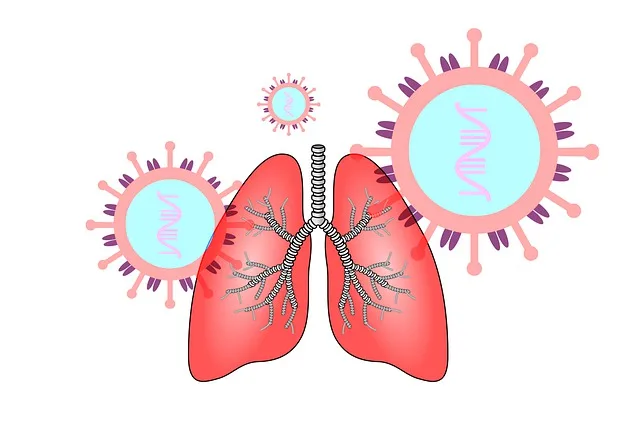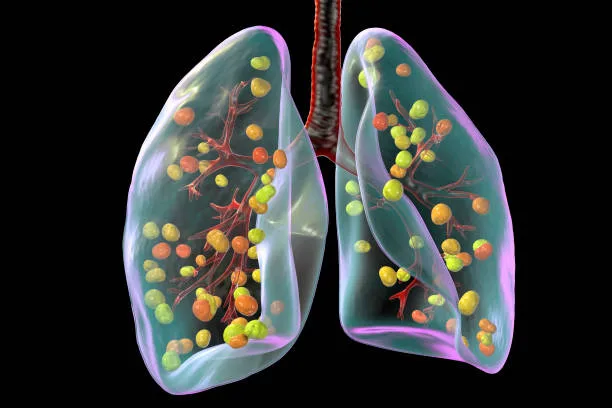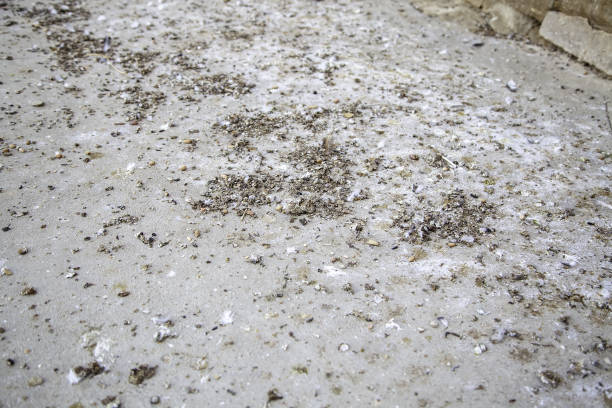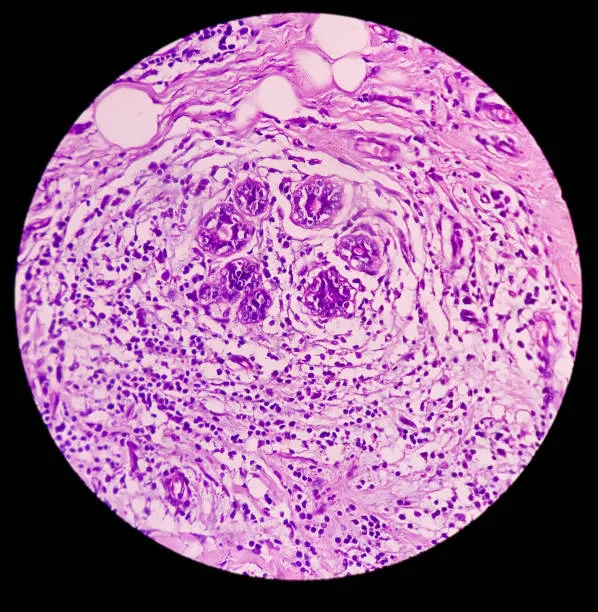Histoplasmosis in Pakistan: Understanding the Fungal Infection

Hi friends, today I have brought you a very informative article “Histoplasmosis in Pakistan: Understanding the Fungal Infection” so let’s see the introduction.
introduction,
Histoplasmosis, an infection caused by the fungus Histoplasma capsulatum, is a common occurrence in many parts of the world, including Pakistan.
While the disease typically presents with mild symptoms, it can lead to severe complications in individuals with compromised immune systems.
Understanding the epidemiology, causes, symptoms, diagnosis, and treatment of histoplasmosis is crucial for effective management and prevention.
Understanding Histoplasmosis

Histoplasma capsulatum, the causative agent of histoplasmosis, thrives in the environment, particularly in soil enriched with bird or bat droppings. People contract histoplasmosis by inhaling the microscopic spores of the fungus, which are released into the air when the soil is disturbed.
my dear friends let’s more talk about it…
Histoplasmosis is a fungal infection caused by the Histoplasma capsulatum fungus. This fungus is found in soil that is enriched with bird or bat droppings.
People can contract histoplasmosis by inhaling the microscopic spores of the fungus, which are released into the air when the soil is disturbed.
How Histoplasmosis Develops
Histoplasma capsulatum is a dimorphic fungus, meaning that it can exist in two different forms: a mold form and a yeast form. The mold form is found in the environment, while the yeast form can grow inside human cells.
When the soil is disturbed, the mold form releases microscopic spores into the air. If you inhale these spores, they can travel to your lungs and transform into yeast cells.
Immune System Response
In most people, the immune system can clear the Histoplasma capsulatum fungus from the body without causing any symptoms. However, in individuals with weakened immune systems, such as those with HIV/AIDS, organ transplants, or certain medical conditions, the fungus may spread beyond the lungs and cause a more serious infection.
Epidemiology of Histoplasmosis in Pakistan
The prevalence of histoplasmosis in Pakistan is relatively low compared to other endemic regions. However, cases have been reported in various parts of the country, suggesting that the infection is present and can affect individuals living in or traveling to these areas.

Causes of Histoplasmosis
The primary cause of histoplasmosis is inhalation of Histoplasma capsulatum spores. These spores can become airborne when activities like construction, excavation, or cleaning disturb soil contaminated with bird or bat droppings.
Individuals with weakened immune systems, such as those with HIV/AIDS, organ transplants, or certain medical conditions, are at an increased risk of developing severe histoplasmosis.
Symptoms of Histoplasmosis
Most cases of histoplasmosis are asymptomatic, meaning individuals do not experience any noticeable symptoms. However, in cases where symptoms do occur, they can range from mild to severe and may include:
Fever
Cough
Chest pain
Shortness of breath
Fatigue
Muscle aches
Joint pain
Skin rash
Weight loss
In severe cases, histoplasmosis can lead to complications such as:
Disseminated histoplasmosis, where the infection spreads beyond the lungs to other organs
Chronic pulmonary histoplasmosis, a long-term lung infection that causes fibrosis and scarring
Histoplasmosis meningitis, an inflammation of the membranes surrounding the brain and spinal cord
Would you like to read:https://drreactivate.com/knee-pain-prevention-in-old-age/

Diagnosis and Treatment of Histoplasmosis
Diagnosing histoplasmosis can be challenging due to its similarity to other respiratory infections. However, several diagnostic methods can be employed to confirm the diagnosis, including:
skin test
blood test,
Sputum or tissue samples,

Skin test:
A skin test, known as the histoplasmin skin test, can detect prior exposure to the Histoplasma capsulatum fungus.
Blood tests:
Blood tests can identify antibodies against the fungus, indicating a current or past infection.
Sputum or tissue samples:
In some cases, a sample of sputum or tissue from the affected area may be tested for the presence of the fungus.
Treatment for histoplasmosis depends on the severity of the infection and the patient’s overall health. In mild cases, no treatment may be necessary as the body’s immune system can clear the infection. However, for moderate to severe cases, antifungal medications are typically prescribed. Common antifungal medications used to treat histoplasmosis include:
Itraconazole
Ketoconazole
Fluconazole
Amphotericin B
In severe cases, hospitalization may be required to administer intravenous antifungal therapy.

Prevention of Histoplasmosis
Preventing histoplasmosis involves avoiding exposure to the Histoplasma capsulatum fungus. This can be achieved by:
=Avoiding activities that disturb soil contaminated with bird or bat droppings, such as cleaning chicken coops or exploring caves
=Wearing a mask when working in potentially contaminated areas
=Controlling bird and bat populations in and around buildings
=For individuals with compromised immune systems, additional preventive measures may be recommended by their healthcare providers.
Conclusion
Histoplasmosis, while relatively uncommon in Pakistan, can cause significant health concerns, especially for individuals with weakened immune systems. Understanding the causes, symptoms, diagnosis, and treatment of histoplasmosis is crucial for effective management and prevention. By raising awareness about the infection and implementing preventive measures, the incidence of histoplasmosis in Pakistan can be further reduced.
FAQs
What is histoplasmosis?
Histoplasmosis is a fungal infection caused by the fungus Histoplasma capsulatum. The fungus is found in soil that is enriched with bird or bat droppings. People can contract histoplasmosis by inhaling the microscopic spores of the fungus, which are released into the air when the soil is disturbed
How common is histoplasmosis?
Histoplasmosis is most common in the central and eastern United States, around the Ohio and Mississippi River Valleys. It is also found in parts of Central and South America, Africa, Asia, and Australia.
Who is at risk for histoplasmosis?
Anyone can get histoplasmosis if they have been in an area where Histoplasma capsulatum lives in the environment. However, people with weakened immune systems are at higher risk for developing severe forms of histoplasmosis. This includes people who have:
HIV/AIDS
Organ transplants
Cancer
Diabetes
Long-term steroid use
What are the symptoms of histoplasmosis?
The symptoms of histoplasmosis can vary depending on the severity of the infection and the individual’s immune system. In mild cases, symptoms may be absent or nonspecific, such as:
Fever
Cough
Chest pain
Shortness of breath
Fatigue
Muscle aches
Joint pain
In more severe cases, symptoms can include:
Skin rash
Weight loss
Complications such as disseminated histoplasmosis, chronic pulmonary histoplasmosis, and histoplasmosis meningitis
Is histoplasmosis contagious?
No, histoplasmosis cannot be spread from person to person or from people to animals. However, in extremely rare cases, the infection can be passed through an organ transplant with an infected organ.
What is the prognosis for histoplasmosis?
The prognosis for histoplasmosis is generally good, especially for people with healthy immune systems. In most cases, the infection resolves on its own without treatment. However, people with weakened immune systems may develop more severe forms of the disease, which can be life-threatening.
What are some of the long-term complications of histoplasmosis?
Chronic pulmonary histoplasmosis: This is a long-term lung infection that can cause scarring and fibrosis (thickening and scarring of tissue).
Histoplasmosis meningitis: This is an inflammation of the meninges, the membranes that surround the brain and spinal cord.
What is the prevalence of histoplasmosis in Pakistan?
Histoplasmosis is relatively uncommon in Pakistan compared to other endemic regions. However, cases have been reported in various parts of the country, suggesting that the infection is present and can affect individuals living in or traveling to these areas.
What are some of the risk factors for histoplasmosis in Pakistan?
The risk factors for histoplasmosis in Pakistan are similar to those in other parts of the world. These include:
Exposure to bird or bat droppings: In Pakistan, bird or bat droppings are commonly found in caves, chicken coops, and other areas where birds and bats congregate.
Weakened immune system: People with weakened immune systems, such as those with HIV/AIDS, organ transplants, or certain medical conditions, are at higher risk for developing severe histoplasmosis.
What are some of the preventive measures that can be taken to reduce the risk of histoplasmosis in Pakistan?
The following preventive measures can be taken to reduce the risk of histoplasmosis in Pakistan:
Avoid activities that disturb contaminated soil: This includes activities such as cleaning chicken coops, exploring caves, and gardening in areas where bird or bat droppings may be present.
Wear a mask in potentially contaminated areas: This is especially important for people with weakened immune systems.
Control bird and bat populations in and around buildings: This can be done by sealing up cracks and holes in buildings, using bird netting, and removing bird feeders.
What should I do if I think I may have histoplasmosis?
If you think you may have histoplasmosis, it is important to see a doctor to get a diagnosis and treatment. Early diagnosis and treatment can help to prevent complications.


Lance Seville
You’re welcome! It’s always a pleasure to be of assistance.